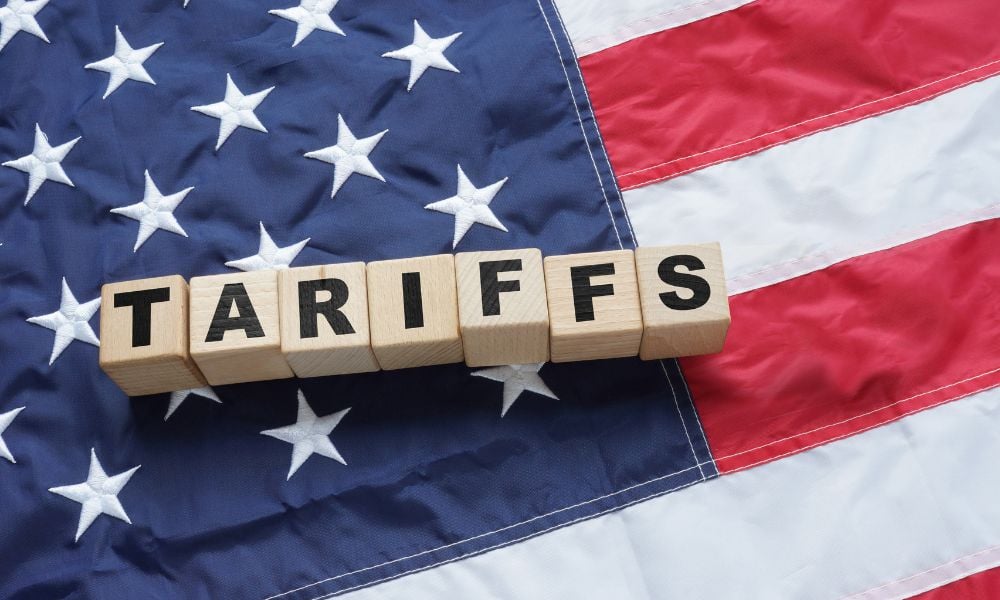Ottawa calls US steel tariffs unjustified as Algoma, unions warn of collapse in export business

US President Donald Trump has doubled tariffs on imported steel and aluminium to 50 percent, a move that could severely damage Canada’s export market.
Catherine Cobden, president of the Canadian Steel Producers Association, warned the decision may lead to “unrecoverable consequences,” according to CBC News.
The tariffs, effective Wednesday, apply to nearly all countries except the United Kingdom, and have already triggered layoffs, investment freezes, and warnings from Canadian manufacturers and government officials.
As per The Globe and Mail, Algoma Steel CEO Michael Garcia said that without a major increase in steel prices, the company’s US business would be “commercially unviable.”
He noted that Algoma’s US revenue share has already dropped from 65 percent to 50 percent under the 25 percent tariffs first introduced in March.
Garcia added that unless steel prices return to 2020–2021 levels of about US$2,000 per tonne, from their current average of US$900 per tonne, the new tariffs could force a shutdown of US-bound operations.
As part of its response, Algoma has announced 35 job cuts, including 19 long-term layoffs, according to United Steelworkers Local 2724 president Bill Slater, as cited by The Globe and Mail.
As reported by CTV News, Marty Warren, national director for Canada at United Steelworkers, warned that many companies are “on the verge of collapse” and may be forced to idle within two to three weeks.
Warren stated, “We cannot access the American market at 50 percent tariffs,” noting that nearly 65 percent of Canadian steel is exported to the US.
The Prime Minister’s Office called the move “unlawful and unjustified” in a statement to CTV News, saying that every dollar from Canada’s retaliatory tariffs—over $90bn before remissions—would support impacted Canadian workers and businesses.
Industry Minister Mélanie Joly added in the House of Commons that the government would prioritise the use of Canadian steel and aluminium in infrastructure and defence projects.
According to BBC News, Trump defended the tariff hike at a US Steel rally, saying, “Nobody’s going to be able to steal your industry,” and argued that 25 percent tariffs were no longer sufficient.
He said the 50 percent rate would prevent foreign steelmakers from “getting over the fence.”
Michael Garcia, speaking to The Globe and Mail, expressed cautious optimism that ongoing Canada–US talks could eventually reset the trading relationship.
Trade Minister Dominic LeBlanc described his latest meeting with US Commerce Secretary Howard Lutnick as “positive,” telling CTV News that discussions helped deepen mutual understanding.
Canada’s Ambassador to the US, Kirsten Hillman, added that the tariffs “are not justified” and appear to contravene the Canada-United States-Mexico Agreement (CUSMA).
Meanwhile, Canadian steel billionaire Barry Zekelman supported Trump’s decision, arguing in The Globe and Mail that Ottawa had failed to address foreign dumping, thereby increasing US pressure.
“Now they’re going to be faced with no choice.
They’re faced with shutting Algoma, or shutting Stelco, or both,” he said.
Zekelman claimed that lax Canadian enforcement had forced domestic producers to compete more aggressively in the US, intensifying American retaliation.
Dumping allegations have also resurfaced.
According to The Globe and Mail, Algoma has raised concerns over unfair pricing from mills in China, South Korea, Malaysia, India, Vietnam, Turkey, and the Middle East.
Cobden argued that Canada’s current case-by-case dumping investigations take too long and called for broader tariffs against entire countries.
According to CBC News, the executive order stated that the previous tariffs had not raised production to meet US national security or defence needs.
The White House now claims that increasing the rate to 50 percent will provide “greater support” to domestic industries.
Rick Huether, CEO of Independent Can Co. in Maryland, told BBC News the abrupt price increases and instability have led his company to pause investment plans.
“There’s a lot of chaos,” he said, adding that customers may now turn to plastic or paper packaging instead of metal products.
Other US manufacturers are already seeing costs rise. Chad Bartusek of Illinois-based Drill Rod & Tool Steels told BBC News that his tariff bill had nearly doubled to $145,000.
“It’s one punch after the other,” he said, noting that his firm had already raised prices by 8 to 14 percent to manage the earlier 25 percent tariffs.
Economists have also raised alarms. As per BBC News, a 2020 analysis found that the original tariffs created 1,000 steel jobs but cost 75,000 jobs across other sectors.
Erica York of the Tax Foundation warned, “It’s just very foolish to double down on this type of tariff,” especially given the harm to US manufacturers that rely on steel as an input.
Despite ongoing talks, few exceptions exist.
According to AP News, only the UK remains excluded from the 50 percent rate due to a separate agreement.
All other nations, including Canada, remain subject to the hike. The European Union has delayed countermeasures until July 14 as negotiations continue.
Ontario Premier Doug Ford and US Ambassador Pete Hoekstra both expressed optimism that a trade deal could still be reached.
Speaking at a Toronto event, Hoekstra told CTV News, “Your prime minister, my president, they can do this quickly if they have the will and the direction.”



